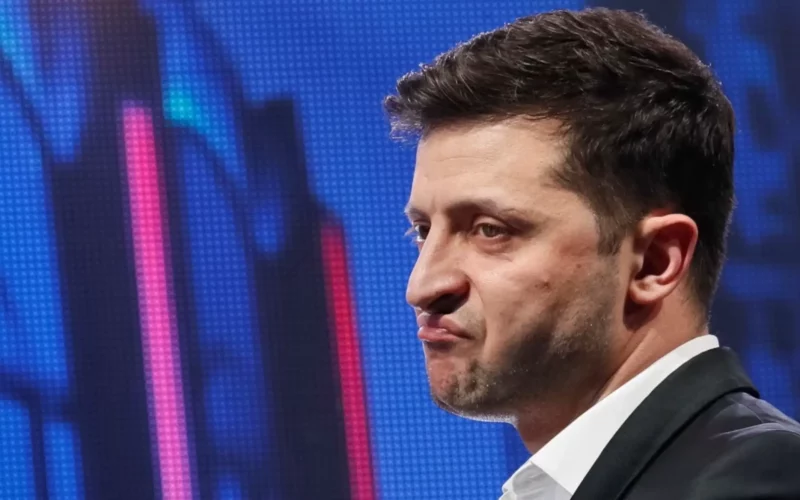President Joe Biden and NATO Secretary General Jens Stoltenberg have reportedly agreed on language about NATO’s readiness to include Ukraine, a matter that has been causing some dispute prior to the Vilnius, Lithuania summit.
“We agree with the language you proposed relative to the future of Ukraine joining NATO,” said Biden, briefly commenting while alongside Stoltenberg.
Stoltenberg, before Biden’s remarks, affirmed that the alliance was in accord regarding the handling of Ukraine’s desire to be included.
“We concur on the collective and optimistic message regarding Ukraine’s path forward and its potential NATO membership,” he stated.
Although the specifics of the agreement were not unveiled by either official, the terminology used will undoubtedly be scrutinized closely. Ukrainian representatives acknowledged that the country will not be immediately granted NATO membership at this summit, yet they anticipate a defined route or schedule in written form, to provide reassurance that their inclusion will occur shortly.
President Biden is urging the country to implement further enhancements to its democratic system before being considered for NATO membership, the Washington Post reported. An official has confirmed that Biden is set to meet Ukrainian President Volodymyr Zelensky at the NATO summit on Wednesday, as reported by Politico.
Ukrainian President Volodymyr Zelensky criticized NATO’s procedure for creating terms about Ukraine’s membership on Twitter, stating that “discussions about specific language are taking place without Ukraine’s participation,” and labeling the current situation as “unprecedented and ridiculous.”
We value our allies. We value our shared security. And we always appreciate an open conversation.
Ukraine will be represented at the NATO summit in Vilnius. Because it is about respect.But Ukraine also deserves respect. Now, on the way to Vilnius, we received signals that…
— Володимир Зеленський (@ZelenskyyUa) July 11, 2023
“We value our allies,” Zelensky wrote on Twitter. “We value our shared security. And we always appreciate an open conversation. Ukraine will be represented at the NATO summit in Vilnius. Because it is about respect. But Ukraine also deserves respect. Now, on the way to Vilnius, we received signals that certain wording is being discussed without Ukraine.”
“And I would like to emphasize that this wording is about the invitation to become NATO member, not about Ukraine’s membership,” he continued. “It’s unprecedented and absurd when time frame is not set neither for the invitation nor for Ukraine’s membership. While at the same time vague wording about ‘conditions’ is added even for inviting Ukraine.”
“It seems there is no readiness neither to invite Ukraine to NATO nor to make it a member of the Alliance,” he added. “This means that a window of opportunity is being left to bargain Ukraine’s membership in NATO in negotiations with Russia. And for Russia, this means motivation to continue its terror. Uncertainty is weakness. And I will openly discuss this at the summit.”
As NATO member countries deliberate over Ukraine’s request for membership at the summit in Vilnius, Lithuania this week, there are echoes of a previous summit.
During the April 2008 Bucharest summit, NATO stated that both Ukraine and Georgia would become part of the US-led defense alliance, but they did not provide a roadmap.
This announcement concealed disagreements between the United States, which advocated for the inclusion of both countries, and France and Germany, who worried that such a move would provoke Russia.
Although this could be viewed as a clever diplomatic balancing act, some experts interpreted it as a double-edged sword: It warned Moscow that two former Soviet territories would join NATO – without providing them the security that accompanies membership.
In the backdrop of the NATO deliberations, Russian President Vladimir Putin looms large. During the Bucharest meeting, Putin tried to dissuade leaders from inducting Ukraine and Georgia into NATO.
Ukraine’s invitation to NATO could trigger a direct confrontation between nuclear-armed nations. Up to this point, all military support for Kyiv from the West has come from individual member nations, not the NATO alliance as a whole.
As noted by Reuters, Eastern European nations argue that the optimal way to prevent another Russian assault on Ukraine is to rapidly bring Ukraine under the collective security protection offered by NATO membership after the war. They believe that the wording of the Bucharest declaration had minimal impact on Putin’s long-term objectives.
However, others contend that promising Ukraine NATO membership post-war might incentivize Putin to sustain the conflict.
These critics suggest that the Bucharest declaration actually encouraged Putin to militarily challenge Western Ukraine, resulting in conflicts in both Ukraine and Georgia.
On Monday, Turkish President Recep Tayyip Erdogan retracted his country’s objection to Sweden’s NATO application, thereby opening the path for the Nordic nation to join the military alliance.

